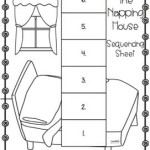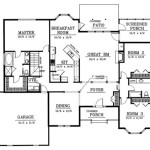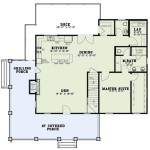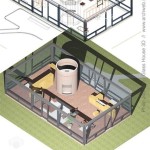Essential Aspects of Unique Shaped House Plans Design
Designing a unique-shaped house can be an exciting prospect, allowing you to create a home that truly reflects your personality and style. However, there are certain essential aspects to consider to ensure your design is both aesthetically pleasing and functional.
Architectural Style and Design
The shape of your house should complement the architectural style you choose. For example, a modern house might feature angular lines and geometric shapes, while a traditional house could have a more symmetrical design with curved roofs and porches.
Functionality and Floor Plan
The shape of the house should also consider functionality. An oddly-shaped house can present challenges in terms of interior layout and space utilization. Consider how the shape will impact the flow of traffic, access to natural light, and the placement of windows and doors.
Materials and Finishes
The choice of materials and finishes can significantly impact the appearance of your home. Natural materials like stone, wood, and brick can create a timeless aesthetic, while modern materials like concrete and glass can give a contemporary look. Finishes such as paint, siding, and landscaping can further enhance the overall design.
Roof Shape and Design
The roof shape can dramatically alter the appearance of your home. A simple gable roof is a classic choice, while a more elaborate roof design can add visual interest and character. Consider the pitch of the roof, the type of roofing materials used, and how the roof will complement the overall shape of the house.
Exterior Features
Exterior features such as porches, decks, and windows contribute to the uniqueness of your home. Think about the size, shape, and placement of these elements to create a harmonious balance with the house's overall design. Windows and doors can serve as focal points and provide natural light.
Energy Efficiency and Sustainability
It's important to consider energy efficiency and sustainability when designing a unique-shaped house. The shape of the house can affect factors like heat gain and loss, ventilation, and natural light. Incorporating elements like solar panels, energy-efficient windows, and sustainable materials can help reduce your environmental impact.
Coordination with Landscape
The house's shape should complement the surrounding landscape. Consider how the design will interact with trees, plants, and topography. Landscaping can enhance the visual appeal of the house and create a sense of unity with the environment.

Floor Plan Friday U Shaped Home Unique Plans House L

U Shaped House Plans With Central Courtyard Google Search Unique Floor Pool

Custom And Unique Home Design

Why An L Shaped House Plan Makes The Best Home Design Monster Plans Blog

Ultra Modern H Shaped House Plan Courtyard Plans Design

U Shaped House Plan

Unique House Plans The Plan

U Shaped House Plans Design Ideas Pictures Inspiration And Decor French Courtyard Farmhouse Floor

L Shaped House Design 3 Bedroom Plan Nethouseplans 01 Nethouseplansnethouseplans

L Shaped House Plans Floor Designs Houseplans Com








